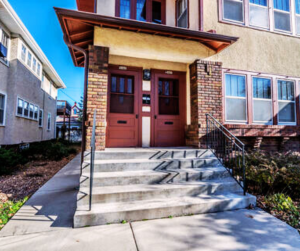10 Things to Do Whether You Decide to Sell Your Minneapolis Duplex Now or A Year From Now
 Chances are you’ve watched an episode or two of some HGTV show about getting your home ready to sell, or you’ve had friends tell you about all the work their Realtor is “making” them do so their house is ready to hit the market at some time in the future.
Chances are you’ve watched an episode or two of some HGTV show about getting your home ready to sell, or you’ve had friends tell you about all the work their Realtor is “making” them do so their house is ready to hit the market at some time in the future.
Usually, these lists include boxing things up, getting rid of things you aren’t using, updating appliances or even whole rooms, painting, staging, and a whole list of miscellaneous tasks and chores we all put off until we have no other choice but to do them.
Perhaps it’s even crossed your mind not to sell your house per se, but your duplex, triplex or fourplex sometime in the future. And if you’re like me, you’ve thought, “How on earth am I going to do all that with tenants in my property?”
Here’s some good news. It will be pretty hard to do that with tenants living there, and most of the time, you don’t have to. A duplex isn’t a house.
So if you’re thinking of selling your duplex anytime between now and a year or two from now, what are some projects you could start crossing off your list?
- Get your leases to market rate rent. A 2-4 unit property is an investment property, even if one of the units is owner-occupied. As an investment property, it is a business. Its value is determined by the amount of revenue it generates. We’ve all had tenants we don’t want to raise the rent on because they’re nice people or we don’t want to do a turnover. However, if their rent is too far below market rate, two things are going to happen. 1. You’re going to get lower offers because the property’s numbers won’t work and 2. The minute the lease is up the new owner is going to raise their rent to market value or ask them to leave anyway.
- Leave at least one unit month to month or vacant. Owner-occupants pay more for a 2-4 unit property than a typical investor. That’s because they are looking at it as a place to live, as well as an investment. Most of these buyers use loan programs that require them to be able to move into the property within 60 days of closing.
- If you have a vacancy, clean and paint. If you happen to have a vacancy, clean and paint just as you would if you were doing a turnover. If your duplex lends itself to an owner-occupant, you may want to do some minor upgrades as well.
- Get rid of tenants’ stuff in the basement. I’ve gone through countless rental properties with loads of things in the basement from multiple generations of tenants.
- Paint any peeling or flaking paint. Many owner-occupants use loan programs like FHA and VA that require there be no peeling or flaking paint on the property. The most common areas for these are exterior window trim, soffits and doors. As we warm up, you may want to put it on your calendar.
- Replace/repair and cracked or
- broken glass. The same loan programs also won’t insure a buyer’s mortgage if there is cracked or broken glass on the property.
- Have a valid rental license. Every now and then I run into an established landlord who doesn’t have a current rental license. This may cause a problem with a buyer, who will have to pay the city a $1000 fee to register the property as a rental.
- Clean up any weeds or volunteers around the foundation and add mulch. There’s something about building foundations that saplings love. Duplex buyers, on the other hand, don’t love weeds or trees growing out of or around foundations. So cut them down, and add several bags of mulch to the flower beds to help the property look clean and neat.
- Put an sewer rider on your insurance policy. Due to the age of most sewer lines from a duplex to a Minneapolis or St Paul street, many of these clay pipes are cracked or even collapsed. Buyers know this and are having their inspectors send a camera down the pipes to look. And if there’s an issue, it’s often an expensive fix. For a cost of roughly $30, you can call your insurance agent and add a rider to your policy to cover it. Even if you don’t plan on selling, it’s probably a smart call to make.
- Hire a Realtor who specializes in duplexes. Duplexes aren’t the same as single-family homes. They are valued differently and have different tax consequences when you sell. Hiring someone unfamiliar with those differences can literally cost you thousands.
If you’re thinking of selling your Twin Cities duplex, whether now, months or even years from now, please don’t hesitate to call. I’m always happy to make suggestions to help you net more when the time comes to sell.

